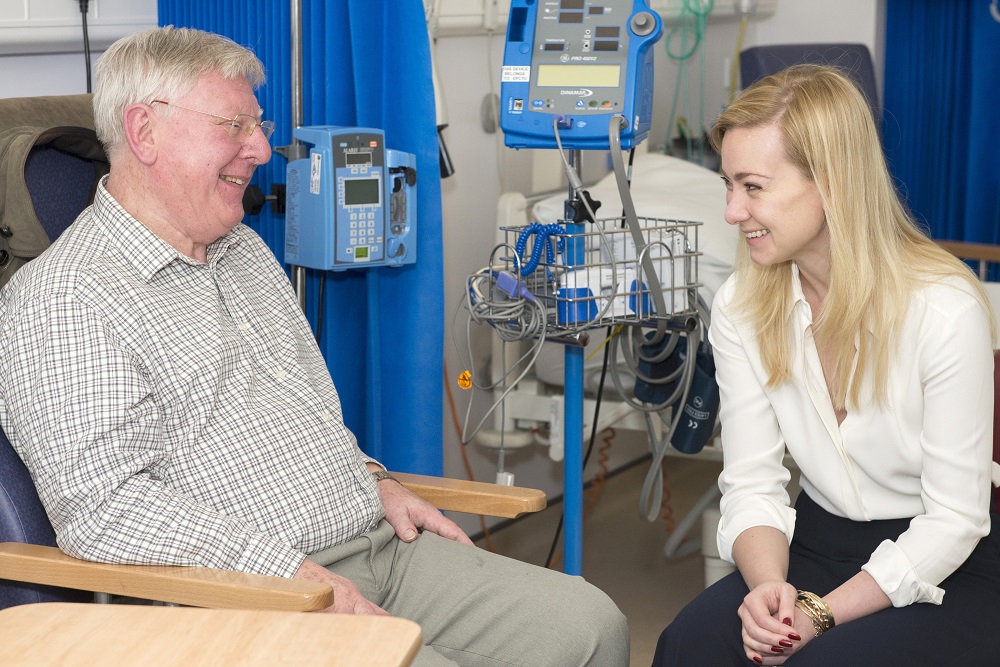
Ahead of World Cancer Day on February, Public Health Minister Nicola Blackwood highlighted the importance of UK scientific research to beating cancer during a visit to the Churchill Hospital.
The Public Health and Innovation Minister saw state-of-the-art clinical trials and facilities for new cancer treatments and patients, both supported by the NIHR Oxford Biomedical Research Centre (BRC).
The Minister visited the Early Phase Clinical Trials Unit and the radiotherapy department at the centre, where she met patients including Peter Homerston (pictured), nurses, senior clinicians and research leaders.
The Minister, also MP for Oxford West and Abingdon, said after the Friday, February 3 visit: “Oxford has a proud tradition of being at the heart of our endeavour to push the boundaries of modern medicine.
“The UK is among the very best in the world for medical and health research, and Oxford will be at the forefront of Britain’s post-Brexit scientific success.”
Oxford BRC Director Prof Keith Channon said: “We were pleased to host the minister’s visit and delighted that she could see examples of the wide range of cutting edge research in cancer, from new discoveries in genetics through to patients receiving world-first drugs in clinical trials.”
Oxford University Hospitals NHS Foundation Trust hosts the NIHR Oxford Biomedical Research Centre, a partnership between the Trust and the University of Oxford, to fund medical research.
The BRC was established in 2007 with a competitively awarded grant of £57m from the National Institute for Health Research (NIHR), funded by the Department of Health to improve the health and wealth of the nation through research.
A further grant of £95.5m was awarded from 2012 to 2017 and in September 2016 it was announced the BRC would receive £113.7m for 2017 to 2022.
The BRC has enabled numerous scientific advances and is currently funding research in 14 themes, to rise to 20 from April 2017.
These have included “bionic eye” retinal implant and gene therapy trials for blind people; leadership of the first clinical trials of Ebola vaccines during the 2014/15 outbreak and use of clinical informatics data such as through a mobile phone app to help pregnant women manage their gestational diabetes.
In cancer, Oxford has made many contributions to understanding the use of genome sequencing in cancer diagnoses and in identifying the correct treatment for a patient’s individual cancer. This has also underpinned the cancer programme in Genomics England and enabled targeted trials of many new drugs for cancer.